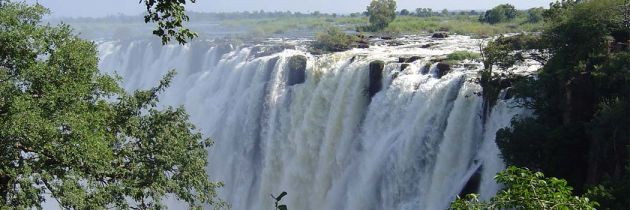Keep Zambia an 'oasis of peace' churches urge during heated election campaign

Church leaders and human rights advocates in Zambia and across the world have strengthened their calls for nonviolent campaigning and a stable constitution ahead of a national election being held in the southern African nation on Aug. 11.
The general secretary of the United Church of Zambia said churches have a duty to hold their government accountable and to push for a stable constitution that provides for the rights of all people during a July 30 press conference.
This can only be accomplished if people exercise their right to vote, said the Rev. Peggy Mulambya Kabonde. The UCZ is represented by more than 1,000 congregations across the country.
"The flashes of violence that have characterized these campaigns is not only unacceptable but an injury to our image," said Kabonde. "For God's sake, we are a Christian nation and cannot afford to see, hear or read of anybody talking about violence."
There has been escalating violence in the ongoing campaigns by the two major contenders, the governing Patriotic Front and the main opposition, the United Party for National Development. Citizens of Zambia will be voting in local, parliamentary, and presidential elections, as well as on a constitutional referendum.
"As the United Church of Zambia, we fully back previous initiatives aimed at bringing peace to our land and will not allow our people to be cursed by violence," said Kabonde. "We must work at ensuring that Zambia remains an oasis of peace."
Zambia gained its independence from Britain in 1964 with the United National Independence Party at the helm, From 1972 to 1991 Zambia was a one-party state with the UNIP as the sole legal political party under the motto "One Zambia, One Nation."
Founding president Kenneth Kaunda was succeeded by Frederick Chiluba of the social-democratic Movement for Multi-Party Democracy in 1991, beginning a period of social-economic growth and government decentralization.
The UCZ rejected any notion that one human being is superior to another, and urged compromise and consensus. "Jesus reminds us in his life that non-violence is the way to peace. He resisted oppression peacefully," said Kabonde. "Jesus called us to love our enemies and persecutors and to pray for them."
She urged political leaders, civil society and all citizens of Zambia to preserve unity and peace over the long term. "Elections are a one-day affair," said Kabonde.
"We cannot reduce Zambia to this one-day affair. We have a huge task to ensure that peace is maintained, rather than only focus on the 11th of August 2016. We also invest in our future by loving one another and doing good for each other."
The UCZ joined voices across the world in calling for peace building at all times. "Let us remember that we owe a duty to posterity," said Kabonde. "We should work toward ensuring that we leave this land better than we found it."
PROACTIVE CHURCHES
Churches in Zambia have been proactive in advocating for peace and unity, said Rev. Suzanne Matale, general secretary of the Council of Churches in Zambia. On 29 March, church leaders invited all political parties to an "indaba," or gathering, to mediate between and among the parties to help build peace and unity.
"The church provided a neutral platform for parties to openly and frankly discuss and find solutions to causes of the prevailing violence," she said.
"A communiqué detailing the acknowledgements, commitments, and actions to be taken by all to ensure that peace was restored and maintained in the nation was signed by all parties in attendance."
Two other meetings of political parties have since been held to reinforce the commitments to peace by all political actors, she added.
"Additionally, pastoral letters have been issued to the nation in which moral and ethical guidance has been offered to the political parties urging them to take leadership in ending violence. Prayers have been organized as another way of bringing a prophetic voice to the nation."
Matale said churches and citizens remain hopeful that the elections will be held in a peaceful manner and that the results will be credible and acceptable to all concerned. "We are closely monitoring the events and will monitor the actual elections," she said.
"The church in Zambia has always played a pivotal role in the life of the nation and it has great influence in helping to resolve difficult national matters of conflict and actively defend the principle of constitutionalism."
Many World Council of Churches members and friends expressed their solidarity and offered prayers for the people of Zambia as they advocate and hope for peaceful elections.
Nora Sanders, general secretary of the United Church of Canada, sent a letter to Kabonde and Matale on July 29 offering prayers and solidarity.
"The United Church echoes the churches' appeal for calm as Zambians prepare to head to the polls," Sanders wrote.
"Throughout its history, Zambia has stood out as a haven of peace and calm, offering refuge and security to those in neighboring countries that have experienced violent conflict. It has been a role-model for countries around the world on how to live with genuine respect for diversity and difference."
In the final days of campaigning, Sanders offered a prayer that all people will continue to live out the values that Zambians have long upheld, of peaceful dialogue and respect for the rights and lives of all.
"Be assured of our prayers; you are not alone," she wrote.